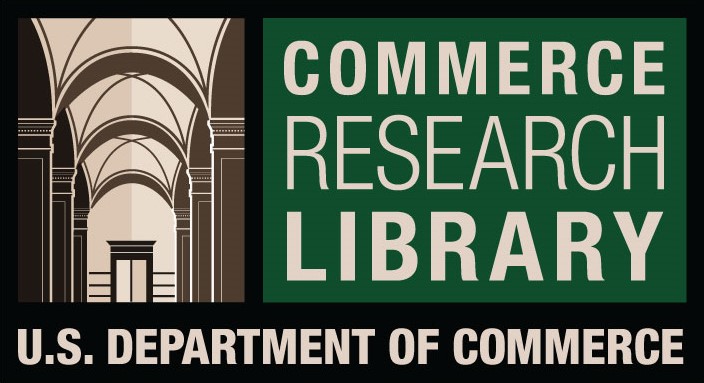Developing Vocation Based Mathematics E- Module in Linear Program Material
DOI:
https://doi.org/10.61841/4rcwy488Keywords:
-assessment, e-module,, mathematics, prototyping, vocational school.Abstract
Vocation based Mathematics E-module is a modification from conventional module by elaborating the information technology utilization and vocation which was chosen by the students, it made this module become more interesting and interactive. This research aimed at obtaining high quality of e-module mathematics based on vocation from the side of validity, practical and affectivity. This used design research method with type research of developing which consist of three stages, i.e. preliminary research, prototyping and assessment. In stage of preliminary research, the data of needs analysis and material analysis. Prototyping stage was developing the product based on needs analysis and curriculum analysis. Assessment was assessing the product through expert validation, limited test and field test. The techniques used for collecting data was documentation, interview, questionnaires and test. Subject of this research was students of XI SMK in Badung Regency. According to the result of analysis, this research has successfully developed e-module of mathematics based on vocation in linear program material for XI class of Vocational School.
Downloads
References
1. Akpomedaye, E. (2019). Assessment of information and communication technology application in the teaching of office technology and management students in delta state polytechnics. International Journal of Social Sciences and Humanities, 3(3), 18-27. https://doi.org/10.29332/ijssh.v3n3.342
2. Alava, L. A. C., Castillo, G. A. L., Macias, J. C. M., Segarra, J. C. G., & Molina, L. A. V. (2018). Energy analysis for designing photovoltaic power plant in building of the faculty of mathematics. International Journal of Physical Sciences and Engineering, 2(3), 10-22. https://doi.org/10.29332/ijpse.v2n3.192
3. Alcívar, M. E. G., Delgado, Y. M. G., Rodríguez, A. K. M., & Romero, E. L. C. (2019). Reaction actions based on student learning assessment results. International Journal of Social Sciences and Humanities, 3(2), 197-207. https://doi.org/10.29332/ijssh.v3n2.315
4. Amen, J. S. L., Tuarez, M. E. S., & Pisco, J. M. P. (2019). The presence of anemia of university leveling students from dysfunctional families. International Journal of Health Sciences, 3(1), 9-16. https://doi.org/10.29332/ijhs.v3n1.253
5. Aminatun, T., Subali, B., Prihartina, I., Masing, F. A., Dwiyani, A., Nindiasari, T., ... & Luthfi, M. (2016). Pengembangan E-Modul berbasis Android Mobile Materi Ekosistem Lokal Nusa Tenggara untuk Meningkatkan Keterampilan Berpikir Siswa SMA. In Prosiding SNPS (Seminar Nasional Pendidikan Sains) (Vol. 3, pp. 223-230).
6. Andriani, S. (2019). Pengembangan E-modul Matematika Berbasis Open Ended pada Materi Sistem Persamaan Linear Dua Valiabel Kelas VIII A. Aksioma, 10(1), 1–12.
7. Borris, D., & Zecho, C. (2018). The linguistic politeness having seen on the current study issue. Linguistics and Culture Review, 2(1), 32-44. https://doi.org/10.37028/lingcure.v2n1.10
8. Effendi, K. N. S. (2019). Developing Mathematics Worksheet Using Futsal Context for School Literacy Movement. Journal on Mathematics Education, 10(2), 203-214.
9. Estevez, A. G., Roche, J. R. F., Espinosa, A. H. R., & Rodríguez, D. L. (2018). Social skills training program to prevent alcohol consumption in university students. International Journal of Health Sciences, 2(3), 43-54. https://doi.org/10.29332/ijhs.v2n3.216
10. Fitri, -, Mahyuni, -, & Sudirman, -. (2018). Schematic of humorous discourse of stand-up comedy in Indonesia. International Journal of Social Sciences and Humanities, 2(3), 107-116. https://doi.org/10.29332/ijssh.v2n3.213
11. Geria, A. A. G. A., Maheswari, A. I. A., & Pemayun, A. A. G. P. (2018). Social media as promotion trend for increasing tourist visit towards digital era. International Journal of Social Sciences and Humanities, 2(3), 86-94. https://doi.org/10.29332/ijssh.v2n3.204
12. Kuusimäki, A. M., Uusitalo-Malmivaara, L., & Tirri, K. (2019). Parents’ and teachers’ views on digital communication in Finland. Education Research International, 2019.
https://doi.org/10.1155/2019/8236786
13. Mahendra, I. (2019). Developing Hots Through Performance Assessment. Developing Hots Through Performance Assessment.
14. Meltzer, D. E. (2002). The relationship between mathematics preparation and conceptual learning gains in physics: A possible “hidden variable” in diagnostic pretest scores. American journal of physics, 70(12), 1259-1268. https://doi.org/10.1119/1.1514215
15. Menéndez, I. Y. C., Napa, M. A. C., Moreira, M. L. M., & Zambrano, G. G. V. (2019). The importance of formative assessment in the learning teaching process. International Journal of Social Sciences and Humanities, 3(2), 238-249. https://doi.org/10.29332/ijssh.v3n2.322
16. Mohan, N., & Kumar, S. S. (2018). From the individual to the historical: a commentary on amitav ghosh as a writer of historical fiction with reference to the glass palace. International Journal of Social Sciences and Humanities, 2(3), 79-85. https://doi.org/10.29332/ijssh.v2n3.203
17. Nurhayati, -, Rusdiawan, -, & Arifuddin, -. (2017). Sentence analysis in broca’s aphasia. International Journal of Social Sciences and Humanities, 1(3), 145-154. https://doi.org/10.29332/ijssh.v1n3.68
18. Palacios, B. A. P., Anchundia, R. E. P., Pihuave, C. A. R., & Vidal, J. O. B. (2019). Formative assessment as tool to improve on teaching process–learning for students. International Journal of Social Sciences and Humanities, 3(3), 36-49. https://doi.org/10.29332/ijssh.v3n3.354
19. Plomp, T., & Nieveen, N. M. (2010). An introduction to educational design research: Proceedings of the seminar conducted at the East China Normal University, Shanghai (PR China), November 23-26, 2007. Stichting Leerplan Ontwikkeling (SLO).
20. Qin, Y., Karimi, H. R., Zhang, A., & Leng, Q. (2014). A novel mathematical formula for retrieval algorithm. Mathematical Problems in Engineering, 2014. https://doi.org/10.1155/2014/859157
21. Reina, A. L. V. (2019). The brain and learning on initial students. International Journal of Health Sciences, 3(2), 38-43. https://doi.org/10.29332/ijhs.v3n2.329
22. Rendra, G. R. P., Darmawiguna, I. G. M., Kom, S., & Sindu, I. G. P. (2018). PENGEMBANGAN E- MODUL BERBASIS PROJECT BASED LEARNING MENGGUNAKAN SCHOOLOGY (Studi Kasus
Mata Pelajaran Web Design Kelas XI Multimedia Di SMK TI Bali Global Singaraja). KARMAPATI (Kumpulan Artikel Mahasiswa Pendidikan Teknik Informatika), 7(2), 50-58. http://dx.doi.org/10.23887/karmapati.v7i2.15269
23. Rinartha, K., Suryasa, W., & Kartika, L. G. S. (2018). Comparative Analysis of String Similarity on Dynamic Query Suggestions. In 2018 Electrical Power, Electronics, Communications, Controls and Informatics Seminar (EECCIS) (pp. 399-404). IEEE.
24. Rodriguez, J. A. P., Perez, H. M. D., & Sabates, H. R. R. (2020). Psychological actions to increase tolerance to frustration in pitchers: category 15-16 years. International Journal of Health Sciences, 4(1), 1-7. https://doi.org/10.29332/ijhs.v4n1.377
25. Rohaeti, E. E., Bernard, M., & Primandhika, R. B. (2019). Developing Interactive Learning Media for School Level Mathematics through Open-Ended Approach Aided by Visual Basic Application for Excel. Journal on Mathematics Education, 10(1), 59-68.
26. Suarsana, I., Widiasih, N. P. S., & Suparta, I. N. (2018). The Effect of Brain Based Learning on Second Grade Junior Students' Mathematics Conceptual Understanding on Polyhedron. Journal on Mathematics Education, 9(1), 145-156.
27. Sulistyaningsih, D., & Aziz, A. (2018). Development of Learning Design for Mathematics Manipulatives Learning based on E-learning and Character Building. International Electronic Journal of Mathematics Education, 14(1), 197-205. https://doi.org/10.29333/iejme/3996
28. Sumandya, I. W. (2018). Pengaruh Penerapan Pendekatan Pembelajaran RME (Realistic Mathematic Education) dan Gaya Berpikir Terhadap Hasil Belajar Matematika Siswa. Emasains: Jurnal Edukasi Matematika dan Sains, 7(1), 55-65. https://doi.org/10.5281/zenodo.1407741
29. Sumandya, I. W. (2019). Meningkatkan Kemampuan Komunkasi Matematis Melalui Pendidikan Matematika Realistik Bermuatan Budaya Lokal. Prosiding SENAMA PGRI, 1, 80-88.
30. Sumandya, I. W. (2019). Pengembangan skenario pembelajaran matematika berbasis vokasional untuk siswa kelas XI SMK. AKSIOMA: Jurnal Matematika dan Pendidikan Matematika, 10(2), 244-253. http://dx.doi.org/10.26877/aks.v10i2.4704
31. Suryasa, W, Mendoza, J.R.Z., Mera, J.T.M., Martinez, M.E.M., Gamez, M.R. (2020). Mobile devices on teaching-learning process for high school level. International Journal of Psychosocial Rehabilitation, 20(4), 330-340. https://doi.org/10.37200/IJPR/V24I4/PR201012
32. Verschaffel, L., Depaepe, F., & Mevarech, Z. (2019). Learning Mathematics in Metacognitively Oriented ICT-Based Learning Environments: A Systematic Review of the Literature. Education Research International, 2019. https://doi.org/10.1155/2019/3402035
33. Wartawan, P. G. (2017). The effectiveness of the use of portfolio assessment by controlling prior knowledge to enhance scientific attitude among senior high school students. International Journal of Physical Sciences and Engineering, 1(3), 9-18. https://doi.org/10.21744/ijpse.v1i3.54
34. Widiartini, N. K., & Sudirtha, I. G. (2019). Effect of KWL learning method (know-want-learn) and self- assessment on student learning independence vocational high school. International Journal of Social Sciences and Humanities, 3(2), 277-284. https://doi.org/10.29332/ijssh.v3n2.331
Downloads
Published
Issue
Section
License

This work is licensed under a Creative Commons Attribution 4.0 International License.
You are free to:
- Share — copy and redistribute the material in any medium or format for any purpose, even commercially.
- Adapt — remix, transform, and build upon the material for any purpose, even commercially.
- The licensor cannot revoke these freedoms as long as you follow the license terms.
Under the following terms:
- Attribution — You must give appropriate credit , provide a link to the license, and indicate if changes were made . You may do so in any reasonable manner, but not in any way that suggests the licensor endorses you or your use.
- No additional restrictions — You may not apply legal terms or technological measures that legally restrict others from doing anything the license permits.
Notices:
You do not have to comply with the license for elements of the material in the public domain or where your use is permitted by an applicable exception or limitation .
No warranties are given. The license may not give you all of the permissions necessary for your intended use. For example, other rights such as publicity, privacy, or moral rights may limit how you use the material.









